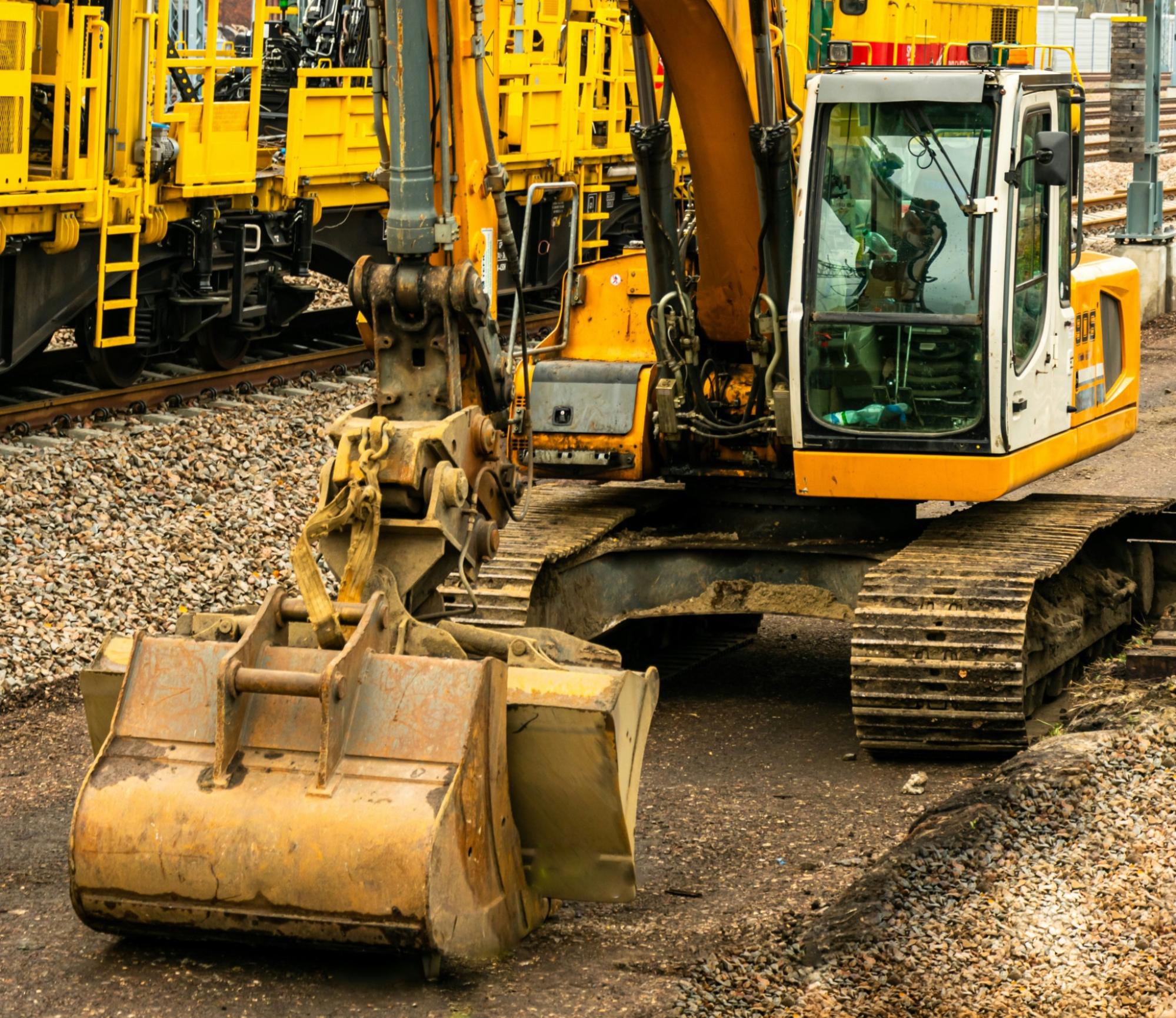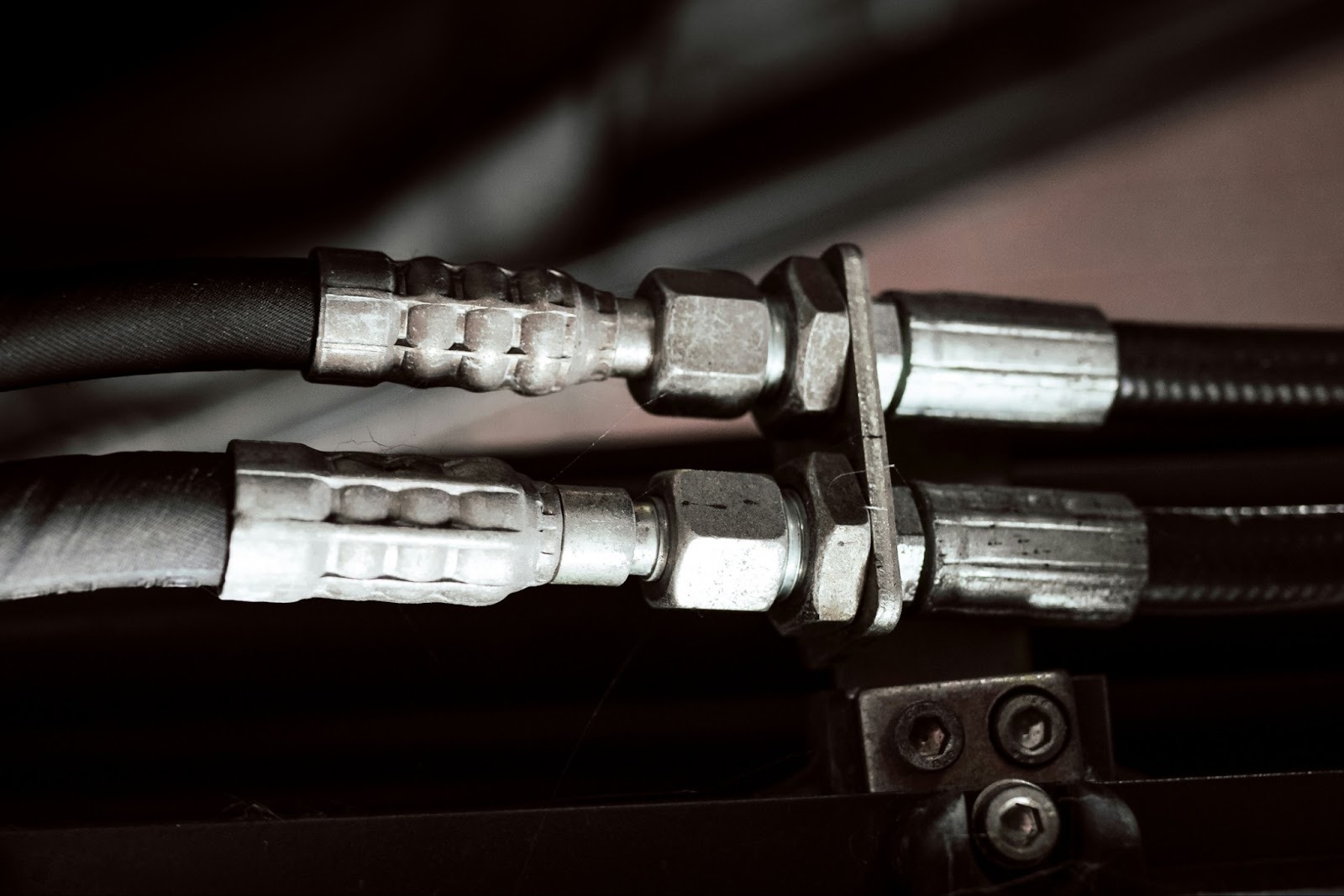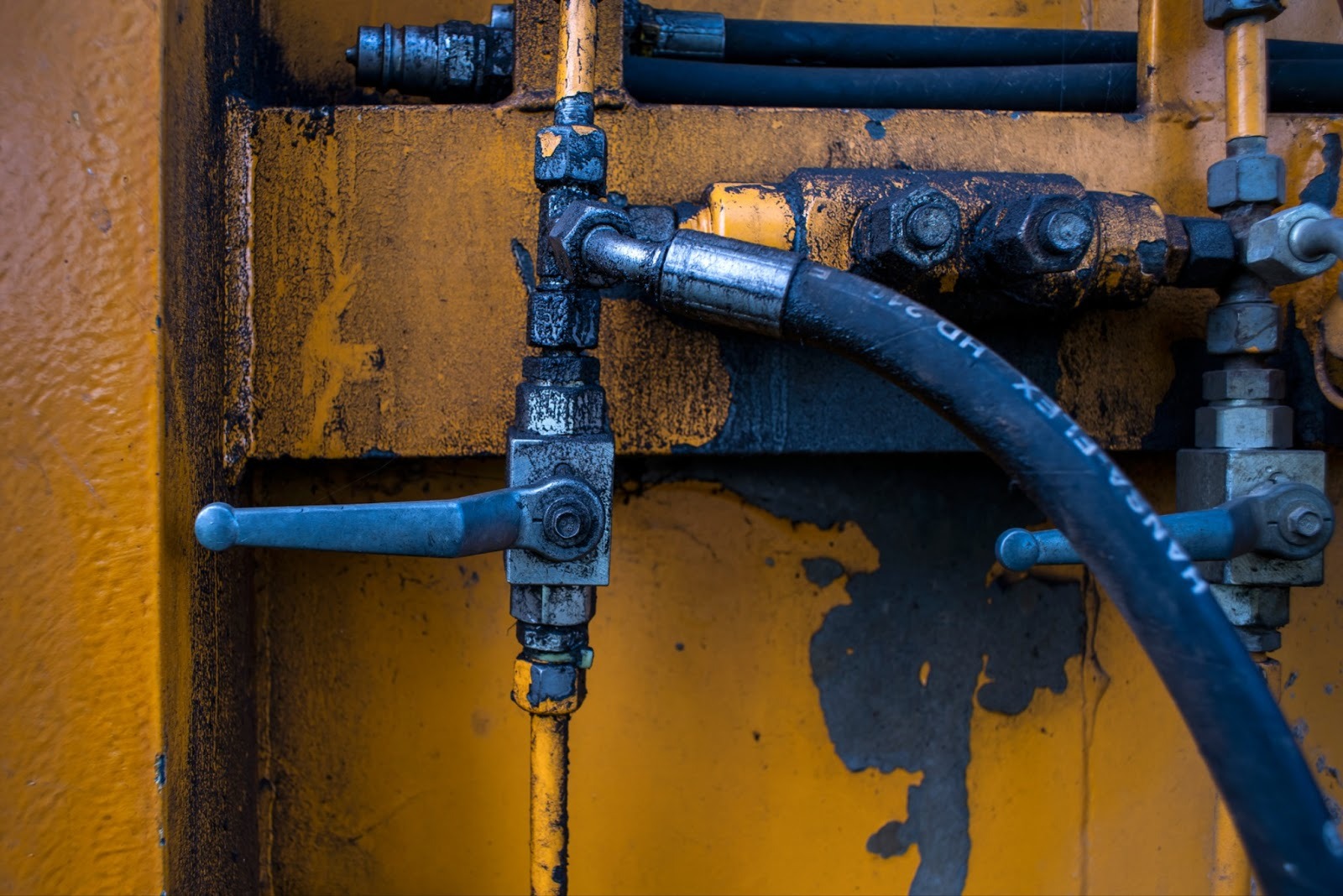Explore why construction projects exceed budgets, the impact of equipment downtime, and how hydraulic cylinder maintenance drives efficiency and cost control.

Construction projects around the world are notorious for exceeding their original budgets.
Industry reports consistently show that even well-planned projects in the U.S. can overrun costs by an average of 10–30%, depending on scale, complexity, and unforeseen challenges.
Research by McKinsey found that large-scale projects can even overshoot budgets by as much as 80%!
An article by leading construction technology firm Propeller Aero cites a comprehensive study spanning 20 countries and 70 years, finding that roughly nine out of ten construction projects exceed their budgets, with an average cost overrun of 28%.
Similarly, CMiC reported in their How Firms are Preventing Construction Overruns in 2025 article that projects frequently exceed their budgets by 20% to 30%.
And while percentages can feel abstract, the financial impact becomes crystal clear when applied to real construction costs:
Now consider the overrun: a 20–30% increase on a 200,000-square-foot warehouse can mean an additional $6.6 million to $16.5 million in unplanned costs. For larger industrial facilities, even a modest 10% overrun could quickly add tens of millions of dollars to the budget.
The bottom line: in commercial and industrial construction, overruns aren’t minor hiccups — they’re multimillion-dollar setbacks that can jeopardize financing, delay operations, and erode profitability before the project reaches break-even.
Labor, materials, and compliance often take center stage in construction, but one of the biggest drivers of cost overruns frequently slips under the radar: equipment downtime. Even minor disruptions — like a hydraulic cylinder failure — can trigger significant ripple effects, adding unexpected costs and delays that quickly escalate budgets and derail schedules.
For plant maintenance managers, fleet directors, and operations leaders, recognizing the connection between project overruns and machinery performance is critical. Hydraulic cylinders play a pivotal role in sustaining machine uptime, and when they fail, the consequences ripple through schedules, escalate costs, and ultimately erode profitability.
Although many factors influence whether a project ultimately stays on budget, proactive maintenance and expert repairs make a meaningful difference. By prioritizing cylinder performance, you can reduce downtime, protect schedules, and keep work moving forward.

Every construction manager knows that even small disruptions can snowball into significant overruns.
The key drivers we regularly see include:
Equipment reliability is one of the few cost-overrun factors that project teams can actually control. Organizations that invest in preventive maintenance and partner with vendors skilled in fast, precise cylinder repairs are far more likely to stay on budget and keep projects on track.
The true cost of downtime is often underestimated. Every hour any of your fleet sits idle — factoring in labor, fuel, and lost productivity — can quickly surpass the investment in timely cylinder maintenance on that machine.

Hydraulic systems are the heartbeat of modern heavy machinery. They convert fluid power into linear or rotational motion, enabling equipment to lift, dig, and transport with precision.
Cylinders, as integral components of these systems, directly influence operational efficiency:
Even minor cylinder leaks or seal failures can gradually erode performance, causing costly slowdowns. In contrast, fleets that proactively monitor cylinder health enjoy higher uptime and steady project pacing, which translates into more predictable budgets.
Cylinders, Inc. Insight: Incorporating hydraulic system audits into project planning allows operations teams to assess the condition of each cylinder and anticipate potential delays before they affect the schedule — or the bottom line.

Cylinders fail due to wear, contamination, or poor sealing, and the impact of that failure includes:
Top-performing construction firms mitigate these risks by partnering with expert cylinder repair specialists. Vendors like us focus on speed, precision, and long-term reliability, reducing repeat failures and safeguarding uptime.
Cylinders, Inc. Insight: Treat cylinder maintenance as an investment rather than a cost — quick. Precise repairs minimize downtime, preserve equipment value, and protect project budgets.

Budget overruns aren’t abstract — they’re measurable in:
Research shows that preventive maintenance programs can reduce unplanned downtime by up to 50%, often recouping maintenance expenditures through uninterrupted productivity.
Specifically, Mitsubishi Electric notes that predictive and preventive maintenance can decrease machine downtime by 30–50% and extend equipment life by 20–40%. Similarly, IBM highlights that proactive maintenance can cut downtime by 35–50% while increasing asset lifespan by 20–40%.
Hydraulic cylinder maintenance is central to achieving these savings, ensuring equipment reliability, protecting schedules, and preserving fleet value.
Cylinders, Inc. Insight: Incorporate a downtime cost calculator into your project planning. Quantifying losses from cylinder failure will help justify investment in our professional maintenance and rapid repair services.
What Top Construction Companies Are Doing

Leading firms are shifting from reactive to predictive and preventive maintenance models:
These practices allow firms to stay on budget while optimizing project timelines, demonstrating that equipment strategy — powered by AI and proactive maintenance — is as crucial as labor and materials management.
Cylinders, Inc. Insight: Build strong vendor relationships. A reliable cylinder repair partner ensures fast service, consistent quality, and minimal disruption — key differentiators in staying on budget.

The ripple effect of cylinder failures on construction projects is more significant than many realize. Even a small hydraulic issue can trigger a chain reaction of delays and extra costs across a job site.
Leading construction firms are now turning to AI-powered predictive monitoring to catch problems before they disrupt schedules and budgets.
Cylinders, Inc. Insight: Include hydraulic system readiness as a KPI in project management dashboards. Linking uptime metrics to budget performance makes the financial impact tangible for decision-makers.

Time is money in construction.
Fast, precise cylinder repair reduces:
We combine expertise, specialized tools, and knowledge of heavy equipment to deliver repairs that meet OEM specifications, giving ops teams confidence in both quality and schedule adherence.
Cylinders, Inc. Insight: When evaluating cylinder repair services, ask about turnaround times, warranty coverage, and the ability to service multiple machine types — factors that directly influence uptime and budget performance.

Construction leaders who proactively manage equipment performance consistently outperform peers in efficiency, uptime, and cost control.
Key practices include:
Cylinders, Inc. Insight: From our work with construction fleets across the Midwest, projects that stay on budget almost always treat hydraulic reliability as a priority. Preventive maintenance and fast access to expert cylinder repair saves time, reduces costs, and keeps operations running smoothly.
While construction projects frequently run over budget, proactive equipment management gives teams a powerful way to control costs.
In our experience, hydraulic cylinders — often overlooked — are critical to maintaining uptime, efficiency, and keeping schedules on track.
By investing in preventive maintenance, leveraging expert repair partners such as us, and monitoring equipment health, plant managers and fleet directors can minimize downtime, protect project timelines, and safeguard profitability.
In short: strong hydraulic systems → reliable machinery → predictable budgets.
By combining precision repair services with proactive equipment management, we can help you reduce overruns, maximize operational performance, and keep your projects on track.
Treat cylinder maintenance not as a routine task, but as a strategic investment.
Explore articles on cylinder repair, maintenance best practices, and manufacturing insights.
To all who’ve been part of our journey this year,As we come to the close of another year, I would like to take a moment to thank you — our valued customers, partners, and colleagues — for the continued trust you place in Cylinders, Inc. Every day, our team has the privilege of supporting the businesses that keep America’s construction, industrial, and manufacturing sectors moving. It’s a responsibility we take seriously, and one we work hard to uphold with every repair, inspection, and consultation.
When winter takes hold across the United States, it’s more than just a dusting of white that greets commuters, it’s a full-scale challenge to keep roads open, fleets operational, and heavy machinery ready. Many U.S. states see between 40 and 70 inches of snow each year, with Vermont averaging about 89 inches annually and Michigan […]